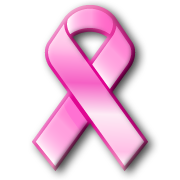Do you eat probiotics? If you have taken antibiotics and would like to cut your risk of breast cancer, research suggests it may be a good idea.
 Probiotics, a.k.a. ‘friendly flora” are a group of microscopic micro-organisms that have a beneficial effect on the gastro-intestinal tract. They have been employed for thousands of years in the production of fermented foods, such as aged dairy products like yogurt and kefir, but also within kimchi, miso and raw sauerkraut. Having a good population of friendly gut flora is associated with more regular elimination and more comfortable digestion, among other benefits. Unfortunately, antibiotic drugs wipe them out indiscriminately!
Probiotics, a.k.a. ‘friendly flora” are a group of microscopic micro-organisms that have a beneficial effect on the gastro-intestinal tract. They have been employed for thousands of years in the production of fermented foods, such as aged dairy products like yogurt and kefir, but also within kimchi, miso and raw sauerkraut. Having a good population of friendly gut flora is associated with more regular elimination and more comfortable digestion, among other benefits. Unfortunately, antibiotic drugs wipe them out indiscriminately!
A controlled study in the Journal of the American Medical Association (by Velicer CM et al. Feb 2004) which investigated 2266 women with invasive breast cancer found that in those women with a history of antibiotic use between 1993 and 2001 there was an “increased risk observed in all antibiotic classes studied.” The study concluded that “use of antibiotics is associated with increased risk of incident and fatal breast cancer.”
While the study did not postulate reasons for the association, another researcher writes: “Antibiotic therapy may induce cancers in the colon and breasts through a mechanism involving bile acids and colonic bacteria” ( D. Stamp, MD Medical Hypotheses 2004: 63 (3) ) . Inspired by this hypothesis, here are some facts followed by my ideas on the relationships between gut flora, antibiotics and breast cancer:
1. Women who take antibiotics do so because they have an infection. Bacterial infection occurs more easily when the immune system is under-active, and an under-active immune system allows cancer to grow unchecked.
2. Oral antibiotic use often leads to dysbiosis, the situation of having an imbalance in intestinal organisms. Since antibiotics only work against bacteria, the yeasts and other non-bacterial micr0-organisms can thrive in their absence of these natural enemies. This is not to mention the antibiotic resistant ‘bugs’ that remain intact through the treatment!
3. The w rong gut flora can increase your estrogen load. The organisms that remain after antibiotic therapy possess the ability to manufacture an enzyme called beta-glucuronidase. This is one of those enzymes you can do without! This enzyme re-assembles estrogen building blocks that were previously dismantled by the liver, allowing the uptake of estrogen back into circulation. Believe me; you probably didn’t need to recycle those!
rong gut flora can increase your estrogen load. The organisms that remain after antibiotic therapy possess the ability to manufacture an enzyme called beta-glucuronidase. This is one of those enzymes you can do without! This enzyme re-assembles estrogen building blocks that were previously dismantled by the liver, allowing the uptake of estrogen back into circulation. Believe me; you probably didn’t need to recycle those!
4. Resulting higher estrogen load increases free estrogen--that is, active, powerful estrogen–which is a proven risk factor in estrogen-receptor-positive breast cancers.
If you’re not a fan of fermented foods, there are lots of quality probiotic supplements available. While this subject is a vast one in itself, here are a couple of tips on buying the good stuff:
1. Make sure they are refrigerated at the location of purchase. You will notice that the products labeled “no refrigeration required” have much, much lower counts of active cells. Ten billion per serving is decent! Likewise, store them in your fridge when you get them home.
2. Look for a product containing lactobacillus acidophilus and bifidus cultures. These are the two most studied, benign organisms and are actually found naturally in the human digestive tract. They like it there! Provided there isn’t too much competition from the undesirables of the gut neighbourhood they will support a healthy intestinal environment.
What’s your favourite way to get probiotics?
